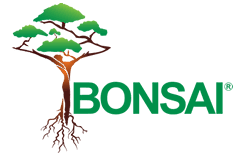This is a second blog in a series about how to explain your strengths to maximize impact. Last time we focused on interviewing, and here we will examine building a better relationship with your leader and co-workers.
I recall a few years ago when I was in a first meeting with a client who was a high Analytical. As we were discussing his strengths, every two to three sentences were met with a “why?” or “how can that be?” I had never known anyone to drill down so deep into all the detail. An hour and many questions later, I found myself exhausted (as I am not an “in the weeds” person) but also realizing I needed to appreciate what that strength brought to a team. Because I had an appreciation of his strengths and mine, I was able to self-manage my reaction, increase my patience level, and improve the team’s performance level.
But what if your manager or peer doesn’t know about your Gallup strengths, let alone their own? What do you do then?
You do exactly what you would during an interview (see my last blog), and explain to the manager your thought process and the reasoning behind your actions. I got this idea from a leader named Claire who sent me an email and was willing to share it with you:
“I wanted to tell you that I had a situation come up very recently where my analytical line of questioning combined with my arranger got me in to some trouble. My questioning the logic of doing something downstream when issues were already being recognized as inefficient but not addressed upstream did not go over well. In a one-on-one today my manager said she noticed my pushing back and asked if it stemmed from a fear of the unknown. It was so helpful to refer to my strengths and to even use the terminology to explain that I actually thrive on the unknown and where my questioning nature that often is perceived as push back comes from and how I recognize that it needs to be “brought upstairs.” Bottom line: having the strengths to speak to turned what could have been an uncomfortable conversation into a very productive one.”
So am I suggesting that we can just explain our behavior using Gallup strengths and be like Popeye, saying, “I am who I am?” Absolutely not! Having an awareness of her own Gallup strengths allows both Claire and her manager to understand her natural gut response, and then Claire can examine what actions she can take that won’t make her appear as if she is closed off to change. For example, I would suggest she first point out one thing she likes about the new idea, even if it is simply the conviction with which it was presented. She should also be aware of her facial expressions and body posture and make any necessary changes.
Her manager can also use this information to bring Claire into problem solving mode sooner, knowing that she easily sees downstream concerns. She can help her be ready to not only identify problems, but then also use the analysis to turn the problem into an opportunity (or find a way around the issue). With her manager’s assistance, Claire can add even more value.
Giving people clues related to how we think as well as what we need as a result will help us all work better together.
For example, my partner who leads TakeFlight with me operates best with deadlines, so we end each call with an action list and due dates. We are both much more effective because he was able to tell me what he needs. While that may feel vulnerable, to think others aren’t aware that we have needs is delusional. We are better off sharing them so we can give our best to a situation.
Needs may come as a result of a strength or be just part of our natural make-up. For example, because I have an Activator strength, this requires action to be taken in order to be fulfilled, or I quickly lose interest. Also, my low Consistency and Discipline strengths (desires for structure and routines) combined with high Ideation and Learning strengths make finding the perfect repeatable solution incredibly dull. Knowing this, I can create my best situation to function in, and other people who have this knowledge are able to tap into my best abilities.
I was working with a sales leader recently who had similar strengths to mine. We discussed how he can better self-manage by avoiding meetings that are about diving into details and having ones that are action-oriented. He now kicks off meetings with a high-level discussion, followed by him leaving the room and giving his employees time to work on solution development. After this, he returns to hear their recommendations. With this process, he is no longer bored and listless during the wrangling of issues at hand.
Your challenge
- Examine your top 10 talent themes and identify the needs that your strengths suggest you have (when I am analyzing strengths, I examine them not only individually but also in pairs and triplets).
- For example, people with Intellection have a need for quiet time that allows them be alone with their thoughts – it is important for them to have time to think before the meetings where they need to contribute.
- Seek appropriate opportunities to share these needs with your leader(s), peers, and direct reports. When they have this information and can help you be more successful, everyone wins!





 Britta burrus design.
Britta burrus design.